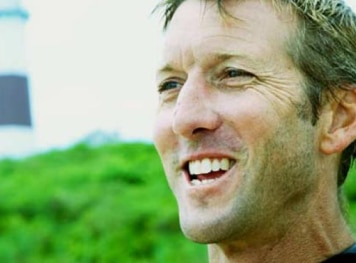
Scott Cullen

In 1997, the U.S. Department of Energy reported that radioactive tritium had been leaking for at least a dozen years from a spent-fuel pool at the High Flux Beam nuclear reactor at Brookhaven National Laboratory on Long Island.
The reactor, which had been shut down for a year, was put on standby. An anti-radiation group in East Hampton, the STAR (Standing for Truth About Radiation) Foundation, vowed to keep the 33-year-old reactor from ever firing up again. It hired Vermont Law and Graduate School graduate Scott Cullen to coordinate its legal challenge.
Cullen was an atypical lawyer. A free spirit who loved to surf near his home in Montauk, Cullen had a broad view of the law and a self-effacing, aw-shucks demeanor that undersold the strength of his intellect. He understood the power of grassroots organizing and the energy of activism. He still remembered vividly the time that he and a few VLGS classmates put kayaks into the White River and paddled downstream to campus—and were astonished by how much trash they saw. One of them mentioned it to a professor who was just parking his car by the take-out. The professor said, “Let’s do something about it.”
Together, they organized a massive work party—putting out flyers and getting people excited. The following weekend more than 60 people showed up to help—including students, professors, local residents, and a local hauling company. They pulled close to ten dump truckloads of trash out of the river. “That was an incredible lesson for me,” recalls Cullen. “And it had nothing to do with the law.”
Behind the scenes, Cullen orchestrated a sophisticated legal and public-information strategy that helped pressure the Energy Department in 1999 to finally pull the plug on the reactor and turn its focus to clean-up.
Among those who noticed Cullen’s effectiveness was GRACE Communications Foundation in New York, which hired him as its Executive Director. The foundation not only funds organizations that promote sustainable practices, but it also helps align agendas, create partnerships, develop public campaigns—building synergy and leverage in the process. Hiring someone with a legal background to lead the foundation’s work was as unconventional—and forward-looking—as the person they hired.
“A legal education can prepare you to do all sorts of things, not just work in a courtroom or with stacks of paper.”